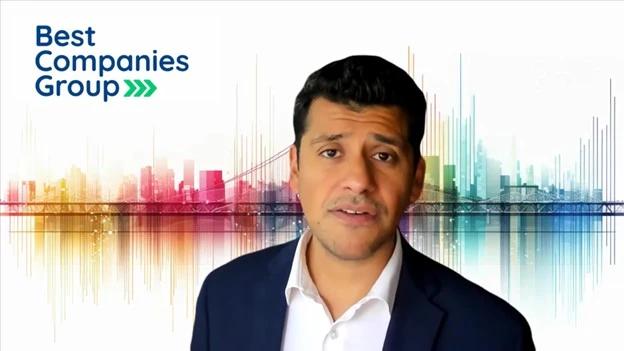
A round of golf and a stop by the 19th for a cold beverage. That’s a good day. That has been a good day for centuries. Fresh air, sporting competition, friends to cheer the great shots and friends to laugh you through the poor ones. It’s all in good fun.
Kyle Callahan and Tony Nysse, who have beautifully mastered the say-anything level of friendship, started a weight loss challenge for turf industry professionals with similar goals in mind: to compete and have a little fun with it. One hundred fifty people voluntarily joined in the physical challenge and the results have been tremendous. Some participants have continued with a second weight loss challenge, with more than 2,200 pounds lost in total, and people across the board are feeling energized, encouraged and more fit for life at work and home.
Serving as directors of golf course and grounds for Thornblade Club (in Greer, South Carolina) and Mountain Lake (in Lake Wales, Florida), Callahan and Nysse started the challenge outside of work to motivate themselves and others. In addition to administering the challenge through emails and Twitter, Zoom calls were set up for additional motivation and to learn from the occasional guest speaker. During an early Zoom with several dozen participants, it became clear that there was a reason to address mental health alongside physical wellness.
“Being overweight is often the result of a mental trigger or a habit that overpowers proper nutrition. Alcohol was mentioned often,” Callahan says. “When a Zoom meeting focusing on mental health was announced on Twitter, some people not partaking in the physical challenge wanted to meet via Zoom to talk about mental things. At that point, Tony really felt a calling.”
How do we describe “mental things?” What does mental health even mean? It’s how someone is feeling emotionally and psychologically. “Many people are scared to talk about mental health,” Nysse says. “We said let’s just have a conversation. Let’s talk about mental health and where we are as a profession. A lot of people gravitated to that.” It wasn’t dramatic, condemning, judgmental or personal. It was an authentic opportunity to reflect through a conversation with other industry professionals. It was a timely opening.
Mental health issues have existed alongside humanity forever, but the topic is now discussed more often, is more broadly recognized and it is less stigmatized. Coupled with an acceleration of mental health issues triggered by the pandemic and some of the rapid global and societal shifts occurring since late 2019, there is plenty to discuss. Golf hasn’t escaped.
Many clubs and properties were carried by their maintenance staffs; an increase in rounds means more wear-and-tear on the course; etiquette is lagging for a number of reasons; supply chain disruptions are a concern as well as the continuing labor shortage. “We are trying to provide entertainment for people while we’re managing something that is living and breathing while we deal with whatever Mother Nature throws at us,” Callahan says. Circumstances can be difficult but what is hopefully improving is our ability as a society to share, understand, embrace and cope with the challenging elements of mental health.
“You will never meet a turf professional, specifically a superintendent, who is not prideful of what they do,” Nysse says. “What’s damaging coming into the mental health piece is when Joe Golfer makes flippant comments about a course somewhere else being better or some detail that wasn’t able to get done. We are all aiming for the betterment of our club or our courses.” Few people outside the industry really know what superintendents do or experience, making peers that much more valuable.
Meeting to discuss life more frequently than just at large conferences, regional shows or chapter meetings helps. Topics such as anxiety, depression, alcoholism, family relationships and mental illnesses have a potential audience and will resonate with different people at different times. “Listening to a few of the individuals who have been in the industry longer than we have, listening to how they talk and how they cope fills our toolbox as we age and move into that senior group,” Callahan says.
It’s fulfilling. Callahan and Nysse receive texts and emails after every session, saying thanks or suggesting topics. The physical challenges and mental health meetings have been a catalyst for changing lives for the better. Everyone is going to have a unique capacity for mental health — you must pay attention to it without overthinking it to understand yours and to try to understand what mental health looks like for your friends.
Small groups consisting of up to five people were established for physical and mental encouragement and those groups have created the most significant impact. Whether with a new buddy who has similar goals or concerns, or with those lifelong besties since kindergarten, it’s clear that mental health gets easier with caring friends. Friends will reach out when they sense something isn’t right. And it works the other way too, so get comfortable leaning into your friends when you need to. It’s OK. Be there for each other.
When the large mental health Zoom calls have fewer people, Callahan and Nysse have noticed that engagement increases. They don’t see the group slowing down. There is a need for it and people are benefiting from it because a job or career that is meaningful is going to have a natural set of pressures, that’s part of striving to succeed. The turf industry is truly blessed with caring individuals and the camaraderie to leverage those pressures. Friendships in the turf industry are a special joy and it’s awesome to witness. Confidence is key. Nothing is perfect. Believe in yourself.
“Many of us got into the industry because we have a passion for doing it,” Nysse says. “We have a wonderful job though we all handle life and the job differently. In remembering why we do what we do there’s a big piece of the stress and anxiety that gets taken care of on its own. If we take a moment to reflect, maybe the task at hand and the future isn’t so daunting. If we think about why we got into the industry, we might just put a smile on our faces.”
And when you smile, so will your friends.
Lee Carr is a Northeast Ohio-based writer and frequent Golf Course Industry contributor.
Editor’s note: This article and accompanying sidebars are meant to be thoughtful and informative, but it does not contain medical advice. If you or someone you know needs help, please, seek professional guidance.

Explore the July 2022 Issue
Check out more from this issue and find your next story to read.
Latest from Golf Course Industry
- Editor’s notebook: Green Start Academy 2024
- USGA focuses on inclusion, sustainability in 2024
- Greens with Envy 65: Carolina on our mind
- Five Iron Golf expands into Minnesota
- Global sports group 54 invests in Turfgrass
- Hawaii's Mauna Kea Golf Course announces reopening
- Georgia GCSA honors superintendent of the year
- Reel Turf Techs: Alex Tessman





